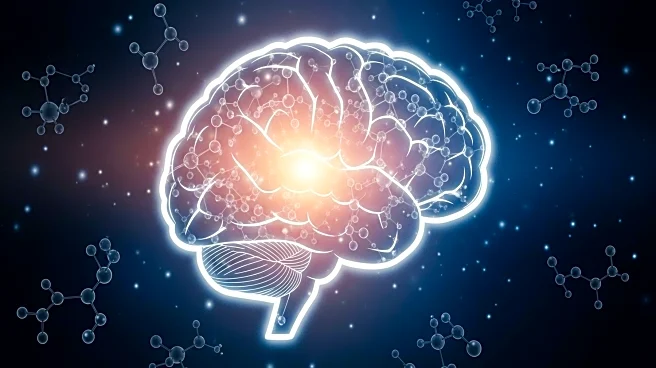What is the story about?
What's Happening?
Researchers at the University of California, San Francisco have discovered that suppressing a specific brain protein, ferritin light chain 1 (Ftl-1), can significantly improve memory in aged mice. The study, published in Nature Aging, found that elevated levels of Ftl-1 in neurons are linked to cognitive decline, while reducing its levels rejuvenates brain function. This research suggests that targeting Ftl-1 could potentially reverse age-related memory loss and offers insights into therapeutic interventions for cognitive aging.
Why It's Important?
The study provides promising evidence that cognitive impairment associated with aging can be reversed, not just delayed. By identifying Ftl-1 as a key factor in memory decline, researchers open new avenues for developing treatments for age-related cognitive disorders, including Alzheimer's disease. This breakthrough challenges the notion that memory loss is an inevitable part of aging and highlights the potential for targeted molecular therapies to restore cognitive function.
What's Next?
Future research may explore the application of Ftl-1-targeted therapies in human models and investigate their efficacy in treating neurodegenerative diseases. Scientists are interested in understanding how Ftl-1 is regulated during aging and its effects across different brain regions. Clinical trials could be considered to assess the safety and effectiveness of such interventions in humans, potentially leading to new treatments for cognitive decline.
















